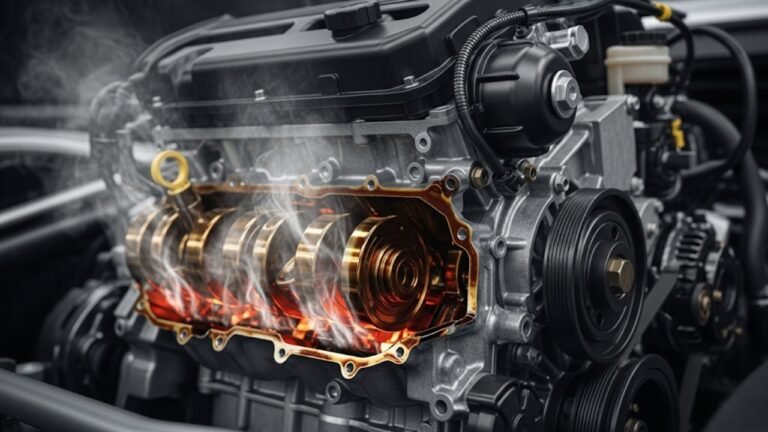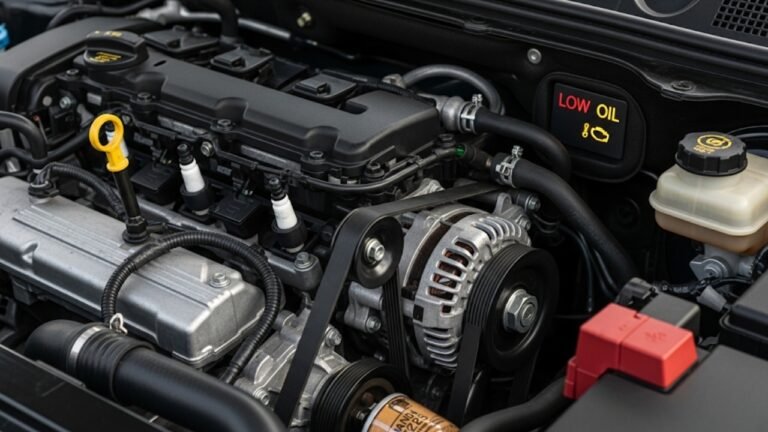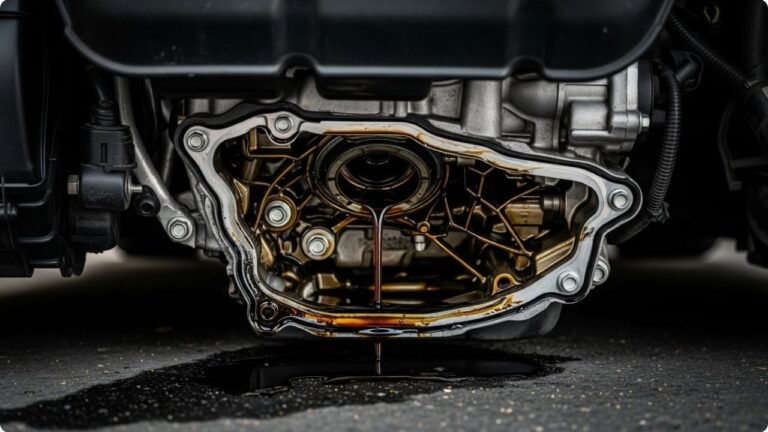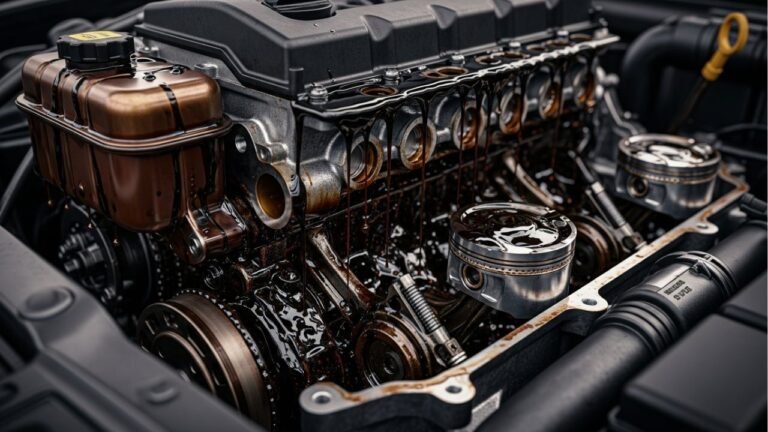Oil Dripping From Car: What It Means and What You Should Do
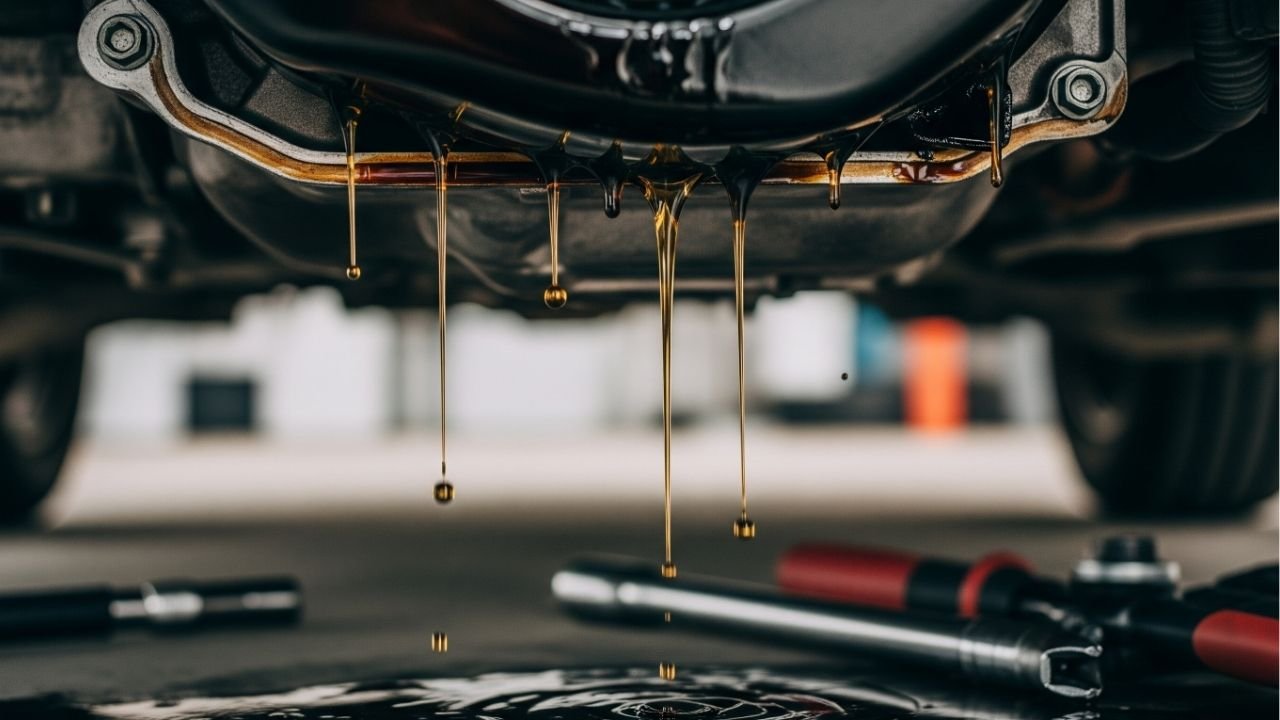
We’ve all been there—you’re walking to your car in the morning, coffee in hand, and you notice a dark stain under the engine. You think, “Hmm, is that oil dripping from my car?” It might seem like a small issue, just a few drops. But trust me, that tiny puddle can lead to big problems if ignored.
I remember when my cousin Fahim ignored a small oil leak for weeks. He thought it was just a “normal old car thing.” One morning, his engine seized up on the way to work. It cost him almost half the car’s value to fix. So yeah, those drips matter more than they look.
In this guide, I’ll walk you through what causes oil to leak, how to identify it, the damage it can do, and how to fix it without breaking the bank. Let’s treat your car like the friend it is—and not let a small issue turn into a disaster.
How to Know If It’s Really Oil Dripping From Your Car

-
Color and texture: Engine oil is usually brown or black, and slick to the touch.
-
Smell: Oil has a burnt, earthy smell—hard to miss.
-
Location: If the drip is near the center or front of your car, it’s likely engine oil.
-
Paper test: Place a white paper or cardboard under your car overnight. If the stain is amber to dark brown and greasy, you’re dealing with engine oil.
Ignoring oil dripping from your car is like ignoring a leaky faucet—small now, but expensive later. That oil is the blood of your engine, and every drop counts.
Common Causes Behind Oil Dripping From Your Car
Let’s dive into the main reasons your car might be losing oil. This is where the rubber meets the road (literally).
1. Worn-Out Gaskets and Seals
Think of gaskets and seals as your engine’s gatekeepers. They keep oil inside where it belongs. Over time, these rubber or metal components can dry out, crack, or wear down. Once that happens, oil starts slipping through the cracks—literally.
You might see a slow drip or even a stream if the damage is bad. This often starts small and grows over time. Most common culprits? Valve cover gaskets, oil pan gaskets, and camshaft seals.
2. Oil Filter Issues
Every time you get an oil change, your filter should be replaced. But sometimes it’s not tightened properly, or the gasket gets pinched. That creates a gap, and boom—oil dripping from your car again.
Even worse, a low-quality oil filter can break down over time, leading to leaks. Always go with a reputable brand, even if it costs a few taka more.
3. Loose or Damaged Oil Drain Plug
At the bottom of your engine’s oil pan is a small plug. It’s removed when you change your oil. If it’s loose or the washer is worn out, you’ll get a drip.
I once helped a friend who accidentally cross-threaded his oil plug. It caused a slow leak that we didn’t catch until the oil light flashed on the highway.
How Serious Is Oil Dripping From a Car?
It depends. A small leak might just mean keeping an eye on your oil levels and topping up more often. But a bigger leak could lead to:
-
Low oil pressure
-
Engine overheating
-
Internal engine damage
-
Complete engine failure
A leak left untreated is like letting your car bleed slowly. You wouldn’t ignore a cut that keeps bleeding, right? Neither should you ignore an oil leak.
How to Fix Oil Dripping From Your Car
Fixing an oil leak depends on where it’s coming from. Here are some potential fixes:
| Leak Location | Potential Fix | Estimated Cost |
|---|---|---|
| Oil filter | Replace or tighten | $10–$30 |
| Valve cover gasket | Replace gasket | $100–$300 |
| Oil pan gasket | Remove pan, install new gasket | $200–$400 |
| Drain plug | Tighten/replace plug or washer | $5–$20 |
| Cracked engine block | Major repair or engine replacement | $2,000+ |
Some repairs are DIY-friendly, especially if you’re handy with tools. But if you’re unsure, trust a mechanic. A botched fix can make the leak worse.
How Long Can You Drive With Oil Leaking?
Short answer? Not long.
While you can drive short distances with a small leak, you’re playing with fire. Heat and friction build up fast in an engine. Without proper oil levels, metal grinds against metal. That’s not just wear—it’s damage.
I once drove about 15 km with a known oil leak and ended up needing a new oil pump. If I had just pulled over and towed it, I would’ve saved over 20,000 BDT.
So, if you notice oil dripping from your car, don’t gamble. Get it checked ASAP.
Symptoms That Accompany Oil Drips
Along with spotting the leak itself, you might notice these signs:
-
Burning oil smell
-
Smoke from the engine bay
-
Low oil warning light
-
Oil pressure light flickering
-
Overheating engine
When oil hits hot engine parts, it burns. That causes a strong smell and sometimes smoke. These are warning signs your car is crying for help.
Top Preventive Tips to Avoid Oil Leaks
You can’t avoid every problem, but here are some smart moves to reduce your risk:
-
Change your oil on time
-
Use high-quality engine oil and filters
-
Check oil levels every week
-
Look under your car often
-
Inspect gaskets and seals at least yearly
Doing these simple things will help you stay ahead of any oil dripping from car issues before they drain your wallet or your patience.
Real-Life Scenarios: Why People Ignore Oil Drips
In places like Dhaka or Chattogram, I’ve seen people ignore small oil leaks because they think, “Oh, this is just part of owning a used car.” I get it—we have busy lives. Between work, family, and traffic, who has time to check under the car?
But here’s the thing: many people end up paying 10x more later. My uncle in Narayanganj had a Toyota Premio that ran beautifully until he ignored a slow drip for months. One rainy morning, the car stalled, and the mechanic told him the engine bearings were gone. That small leak? It slowly destroyed his engine.
It’s not just about saving money—it’s about being responsible for your safety and those around you. Oil dripping from your car isn’t just a car problem. It’s a responsibility issue.
Common Myths About Oil Leaks You Should Stop Believing
Let’s bust some common myths I hear often in local garages:
Myth #1: “All old cars leak oil.”
Not true. Age doesn’t automatically mean leakage. It’s about maintenance, not mileage.
Myth #2: “If it’s not dripping much, it’s not serious.”
Even small leaks reduce oil pressure over time. It’s like losing blood slowly—it adds up.
Myth #3: “Oil leaks fix themselves.”
Nope. Gaskets and seals don’t magically heal. They get worse, never better.
Myth #4: “I’ll just add more oil instead of fixing the leak.”
Topping off might help short-term, but you’re treating the symptom, not the cause. Plus, you risk overfilling, which causes more issues.
Using Oil Stop-Leak Additives: Do They Work?
There are products out there called oil stop-leak additives. You pour them into the engine, and they claim to swell seals and stop leaks. Sounds too good to be true?
Sometimes they do work—for minor leaks. Especially for older engines where replacing seals might not be worth the cost. But they are temporary. Think of it like duct tape on a leaky pipe. It buys time, not a solution.
If you use one, read the label carefully and don’t overdo it. Also, only use it once between oil changes. Overusing can clog vital parts like your oil pickup tube.
When Should You Call a Mechanic?
Here are signs it’s time to stop Googling and call a pro:
-
Oil puddles are getting larger.
-
You’re adding oil more than once a week.
-
Burnt oil smell won’t go away.
-
Engine is running rough or overheating.
-
You’ve tried DIY, and it’s still leaking.
When in doubt, get it checked. A 500 BDT inspection now might save you 50,000 BDT later.
FAQs About Oil Dripping From a Car
1. Can I still drive if oil is dripping from my car?
Yes, but only for short distances and only if the leak is minor. Keep checking your oil level. Don’t drive if your oil light comes on or if you see smoke.
2. What happens if I ignore an oil leak?
Ignoring it can lead to engine overheating, loss of lubrication, internal damage, or even engine seizure. Repairs can cost thousands.
3. Is oil dripping from the car dangerous?
Yes. Besides engine damage, oil can drip onto hot parts and cause smoke—or in rare cases, fire. It also makes the ground slippery, which is dangerous in driveways or garages.
4. How do I find where the oil is leaking from?
Start by checking the valve cover, oil pan, and filter. Use a flashlight and look for fresh oil. A UV dye kit can also help detect leaks.
5. Will thicker oil stop a leak?
Not really. Thicker oil might reduce how fast it leaks, but it doesn’t fix the problem. And it could harm your engine if it’s not the right viscosity.
6. How much does it cost to fix an oil leak?
It depends. It could be as little as $20 (2,000 BDT) for a drain plug, or over $1,000 (100,000+ BDT) for a damaged engine.
7. Can an oil change stop a leak?
Sometimes, if the leak is due to a clogged filter or old oil. But usually, the underlying cause is mechanical—like a bad gasket—which needs repair.
8. How often should I check for leaks?
Check underneath your car weekly. Especially after long drives or oil changes.
Cultural Connection: Why We Often Delay Fixing Oil Leaks
In South Asia, there’s a phrase I’ve heard too many times: “Cholche toh cholche” (If it’s working, let it be). That mindset leads many to delay small car repairs, especially leaks. It’s not out of laziness—it’s about priorities, money, and time.
But let me say this: fixing an oil leak is like catching a health issue early. The earlier, the better—and cheaper.
Would you wait till your tooth hurts badly before seeing a dentist? Same logic applies to your engine.
Simple Maintenance Habits That Prevent Oil Leaks
Here are some easy habits to prevent oil dripping from your car:
-
Warm up your car before driving, especially in cold seasons. Sudden heat changes can damage seals.
-
Use manufacturer-recommended oil only. Wrong oil = more wear.
-
Get your engine cleaned yearly. Dirt buildup can mask leaks.
-
Change your oil on time—don’t wait until it’s sludge.
These habits cost almost nothing but can extend your car’s life by years.
Final Thoughts: Don’t Let a Leak Sink Your Engine
Oil dripping from your car isn’t just about a few stains on the driveway—it’s about your engine’s health, your safety, and your wallet. Catching a leak early can save your engine and give you peace of mind.
I always say, a car is like a partner. Treat it with care, and it’ll take you everywhere. Neglect it, and it’ll leave you stranded—probably in the worst traffic possible!
So next time you see that little puddle under your car, don’t ignore it. Talk to your mechanic, ask questions, and don’t be afraid to get your hands a little dirty if you’re a DIY fan.
Your car—and your future self—will thank you.

